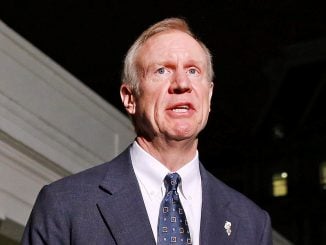
RALEIGH — The latest NC State University leading economic indicators index was released by economist Dr. Michael Walden last week, reporting a slight drop from the prior months reading as the stat and national economy continue to fall short of escape velocity.
According to the report, the major reason for the decline was a double-digit drop in volatile building permits. However, among the other components, only initial claims for unemployment improved by declining more than 6 percent.”
While these results are not positive, it is too early for concern as a downward trend in the Index has not been established,” said Walden of the index reading. “Still, as the nation struggles with modest growth and as the Trump Administration economic stimulus plans are currently stalled, both private and public decision-makers should approach the future with caution.”
The index is also below where it was one year ago. While North Carolina economic policies have bolstered the Old North State’s performance versus its peers, it has become increasingly difficult to insulate local economic activity from regional, national, and global trends as business and capital become ever more interdependent.
The index itself is comprised of five input components that yield a final reading: the Economic Cycle Research Institute (ECRI)’s Weekly Leading Index, North Carolina initial claims for unemployment benefits, North Carolina building permits, average weekly hours of work of all North Carolina employees in manufacturing, and average weekly earnings of all North Carolina employees in manufacturing.
As noted by Walden, building permits can be volatile and subject to significant seasonal changes.
The national headwinds to accelerations in economic growth persist as much of President Donald Trump’s economic agenda; repealing the Affordable Care Act, tax cuts and infrastructure spending has been subject to setbacks and timidity among Republican majorities in the United States Congress.
Still, U.S. equity indices have continued to post record closing highs in recent trading sessions as markets shrug off geopolitical risks and continue to find comfort in the support and liquidity provided by the world’s central banks.



